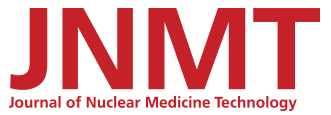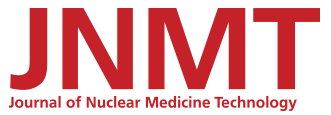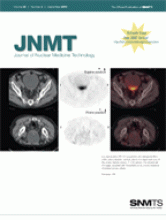
David Perry, CNMT, PET
The NMTCB continues to move forward with the development of the nuclear medicine advanced associate (NMAA) certification examination. With the cooperation of nuclear medicine physicians, radiologists, physician assistants, and technologists, along with some experts in certain specialty areas such as nursing and radiopharmacy, we are in the process of developing a bank of items for the inaugural examination for the NMAA certification.
At the 2010 SNM annual meeting in Salt Lake City, Utah, the NMTCB reaffirmed its commitment to deliver the first examination for this new career path to graduates of the first NMAA class at the 58th annual meeting of the SNM in San Antonio, Texas, in June 2011. Although this represents a rather aggressive timeline for the delivery of a brand new certification examination, the NMTCB is proud of its history of developing significant specialty examinations within a relatively short period. Both the nuclear cardiology and the positron emission tomography examinations were delivered within less than 1 year from the date that the NMTCB committed to developing those examinations, and both are still going strong today. There are currently over 700 active nuclear cardiology technologists, and more than 600 individuals maintain active PET certification.
Development of a new certification examination is not a trivial matter. The NMTCB began development of the NMAA examination by gathering a diverse group of experts in the field to create a content outline, which serves as a roadmap for the examination. Unlike when the nuclear cardiology technologist and PET examinations were being developed, there are currently no individuals formally serving in the role of a nuclear medicine advanced associate; our group of experts therefore included physicians, physicists, radiopharmacists, technologists, and individuals with a nursing background to help determine exactly what content areas should be included. Using the SNM's Nuclear Medicine Advanced Associate Curriculum Guide and draft NMAA scope of practice, this group developed a content outline that includes 4 major categories: patient care, clinical procedures, diagnostic and therapeutic radiopharmaceuticals, and radiation safety and radiobiology in clinical practice. These categories are then divided into numerous subgroups, much in the same way that the content outline for the NMTCB examination is divided. From there, the next step is to develop multiple items addressing each line item in the outline. These will be reviewed, edited, and evaluated by a number of nuclear medicine and psychometric experts before a final examination is ready to be published.
The board of directors is both excited and honored to have accepted the challenge of developing a certification examination for the NMAA and looks forward to delivering it to the first graduates of the NMAA program next June.
Regarding the entry level examination, the NMTCB has made 2 announcements that will affect the eligibility requirements beginning in January 2016. First, for some time we have maintained an alternate eligibility pathway that has allowed certain technologists who have been working in the field but have not been certified, or have previously been certified and then let their NMTCB (or ARRT) certification lapse, to obtain their CNMT certification. This pathway to eligibility had a good purpose and has served it well, but the field is evolving rapidly and the board of directors has determined that continuation of this pathway to eligibility no longer serves the nuclear medicine community in the way that was intended. Because there may be some who have already embarked on this route to eligibility, which requires a minimum of 8,000 hours of nuclear medicine clinical practice within the immediately preceding 60 months, the board has announced that it will no longer accept applications using this route to eligibility after December 31, 2015.
In the spring of 2010, the NMTCB also announced that, beginning January 1, 2016, it will accept applications only from graduates of nuclear medicine technology education programs that are programmatically accredited. Accreditation is a voluntary process that may be undertaken by schools to demonstrate compliance with specific standards designed to indicate a level of education quality.
The NMTCB currently accepts applications from graduates of regionally accredited schools, as well as programmatically accredited education programs. Regional accreditation is a voluntary process through which a school, usually a college or university, undergoes a lengthy and detailed review of its programs, campuses, and educational delivery methods by 1 of 6 regional accrediting agencies. Although holding regional accreditation demonstrates compliance with very high educational standards, this type of accreditation does not require the utilization of nuclear medicine professionals to assess the quality and clinical standards specific to the nuclear medicine education program.
Programs that obtain voluntary programmatic accreditation must demonstrate adherence to quality educational standards specific to nuclear medicine. Their graduates must demonstrate that they have met minimal clinical competency standards. In addition, each program and clinical site is visited and assessed by nuclear medicine and education professionals on a regular basis. Many of the current nuclear medicine technology education programs that are affiliated with regionally accredited colleges or universities also obtain programmatic accreditation to demonstrate their dedication to the highest standards of the nuclear medicine profession.
It is the position of the NMTCB that requiring programmatic accreditation will help to assure other nuclear medicine professionals, employers, licensing agencies, and the public that a certified nuclear medicine technologist has clearly demonstrated the knowledge and clinical competence to perform safe, effective nuclear medicine procedures with the highest level of quality clinical standards as defined by the profession of nuclear medicine technology.
For more information about the NMAA certification examination or these announcements about changes to the eligibility requirements, please contact the NMTCB (board@nmtcb.org).







